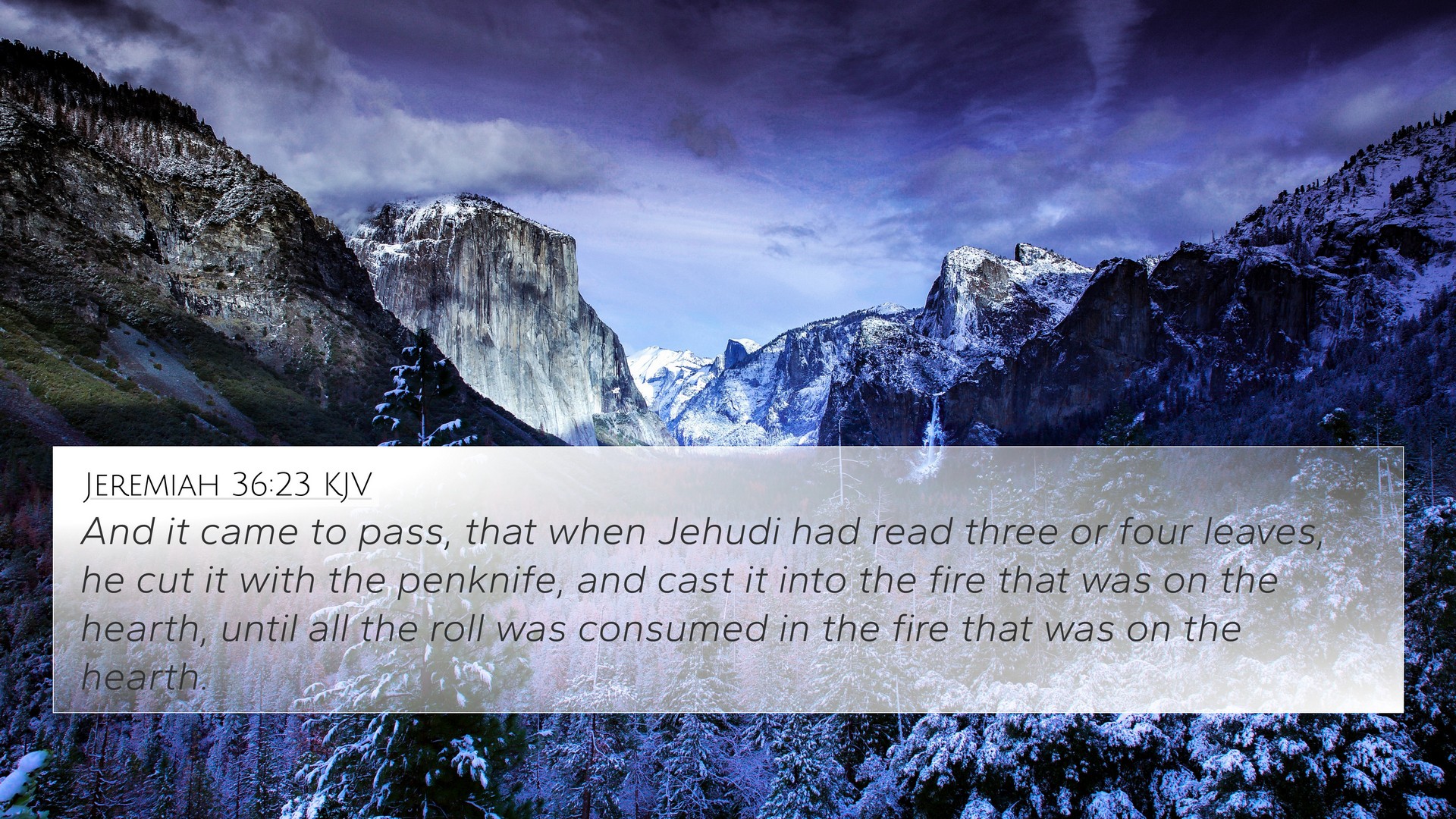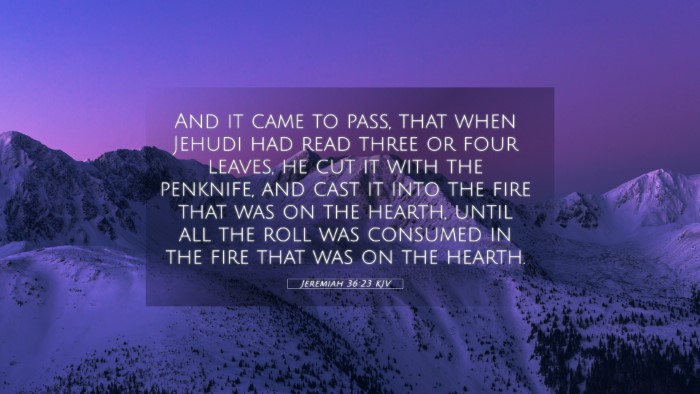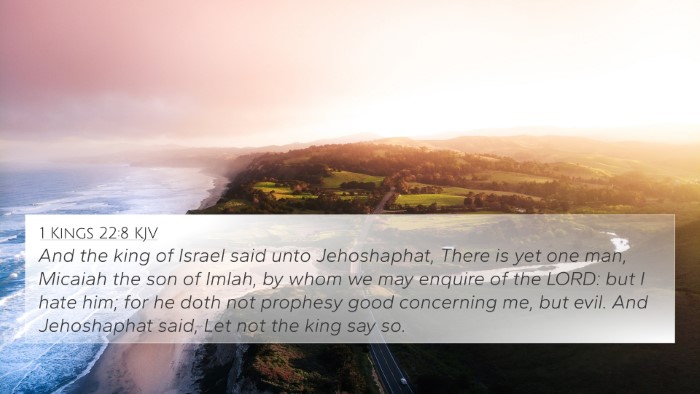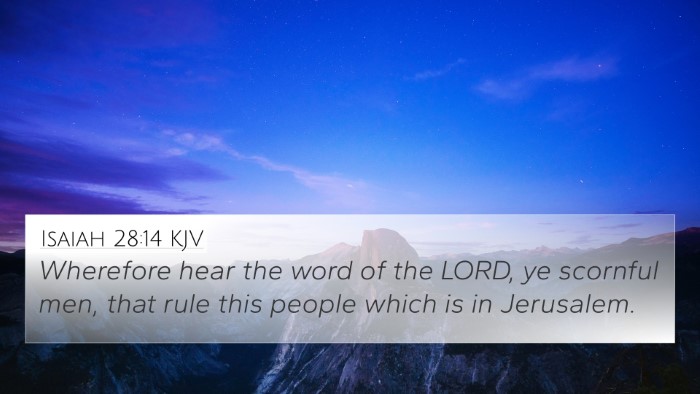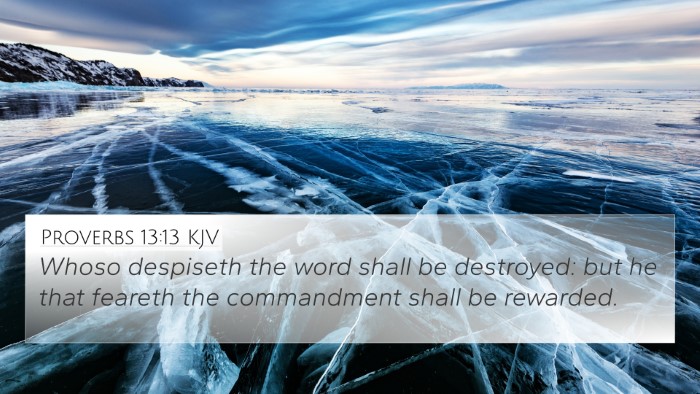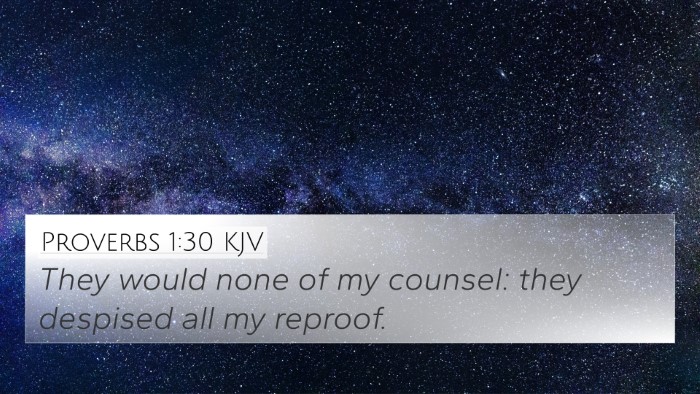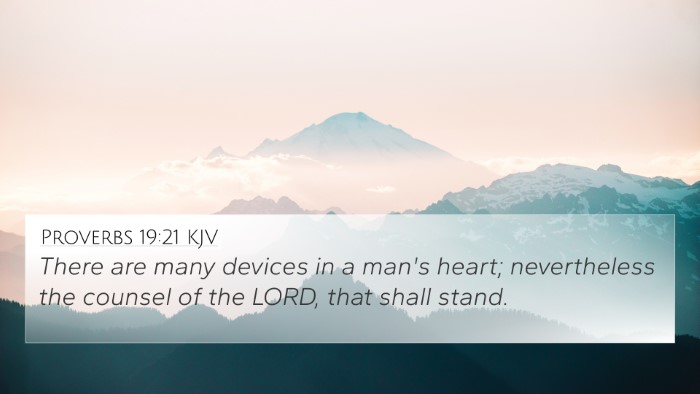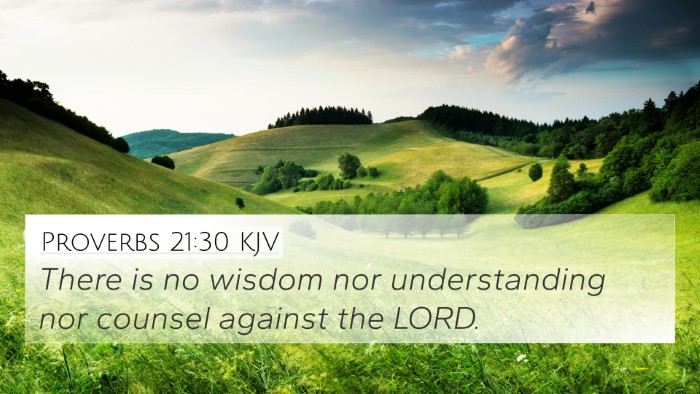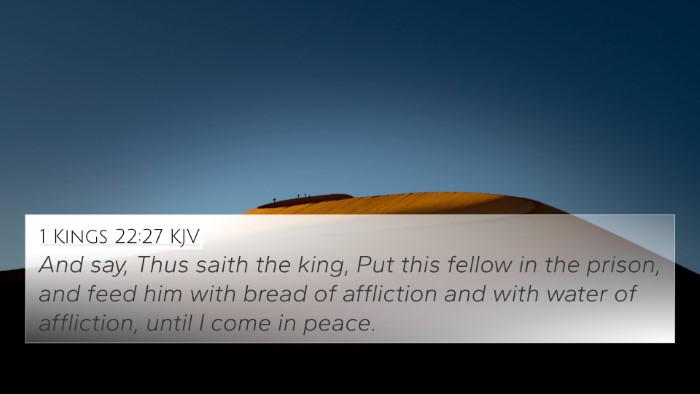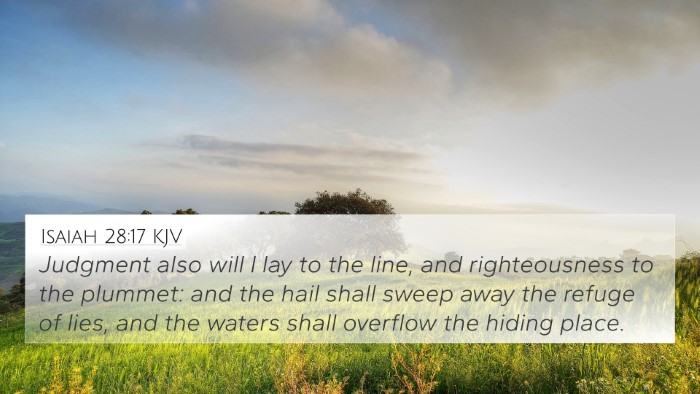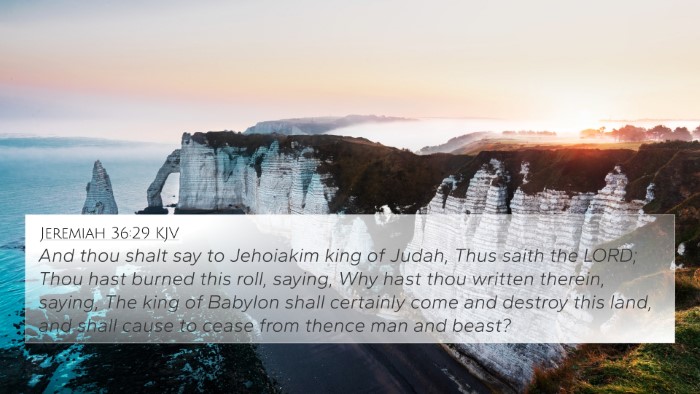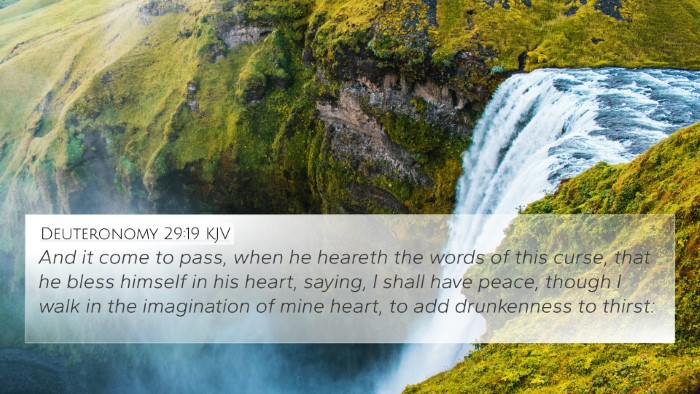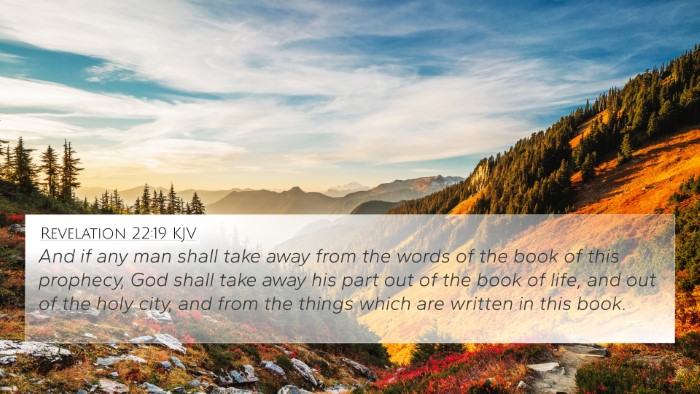Understanding Jeremiah 36:23
Jeremiah 36:23 states: "And it came to pass, that when Jehudi had read three or four leaves, he cut it with the penknife, and cast it into the fire that was on the hearth, until all the roll was consumed in the fire that was on the hearth."
Summary of Meaning
This verse describes a poignant moment during the reading of God’s words through the prophet Jeremiah. The act of Jehudi cutting the scroll and burning it symbolizes resistance to God’s messages and highlights the contempt shown towards divine revelation.
Commentary Insights
-
Matthew Henry:
Henry explains that this act of destruction demonstrates not only defiance against God’s command but also marks a tragic moment where the truth is rejected. The scroll represented God’s judgment, and its destruction symbolizes a deep-seated unwillingness to heed divine warnings.
-
Albert Barnes:
Barnes emphasizes the significance of the scroll containing the words of God, which were meant to bring repentance. The burning of the word signifies an outright rebellion against God. The attempt to reject God’s message only results in further condemnation.
-
Adam Clarke:
Clarke reflects on the futility of trying to suppress God's word. The act of burning the scroll not only reveals the adversary's foolishness but also demonstrates God's sovereignty as His message cannot be destroyed or annulled despite human actions.
Biblical Cross-References
Jeremiah 36:23 connects with several other Scriptures that emphasize themes of divine authority, truth, and the consequences of rebellion against God. Here are some key cross-references:
- Jeremiah 1:9: God’s power to place His words in the mouths of prophets.
- Isaiah 55:11: Assurance that God's word will not return void.
- Revelation 10:9-10: The sweetness and bitterness of receiving God's message.
- Psalms 119:89: The permanence of God’s word.
- Matthew 5:18: The unbreakable nature of the Law.
- 2 Timothy 3:16: The divine inspiration of all Scripture.
- Hebrews 4:12: The active power of the Word of God.
Thematic Connections
This verse serves as an essential cornerstone in understanding the consequences of rejecting God’s revelation:
- It highlights divine judgment and the seriousness of dismissing God's word.
- It illustrates the human tendency to resist divine authority.
- It calls attention to the overarching theme of preservation and sovereignty of God’s word despite human action.
- It shows a pattern of spiritual blindness prevalent in human hearts that often leads to destruction.
Similar Biblical Themes
By studying Jeremiah 36:23 alongside relevant scriptures, we engage in a comparative Bible verse analysis that brings depth to our understanding of biblical themes:
-
Resistance to Prophetic Words: See Acts 7:51 where Stephen addresses the stiff-necked people, akin to the response Jeremiah received.
-
Importance of Obeying God: Refer to John 14:15, where Jesus emphasizes the necessity of love through obedience.
-
Judgment from Ignoring God’s Words: Compare with Ezekiel 3:26-27, which warns against ignoring God’s commands.
Conclusion
Jeremiah 36:23 serves as an imperative reminder of the power and significance of God’s message and warns against the inherent dangers of resistance to divine truth. As believers, understanding the gravity of this passage can deepen our connection with God's intent and inspire a more profound reverence for His word.
Further Study Tools
For those looking to dive deeper into cross-referencing Bible verses, consider the following tools and resources:
- Bible Concordance: Useful for finding word references throughout the Bible.
- Bible Cross-reference Guide: A systematic way to connect related scriptures.
- Cross-reference Bible Study Methods: Practical applications for personal study times.
